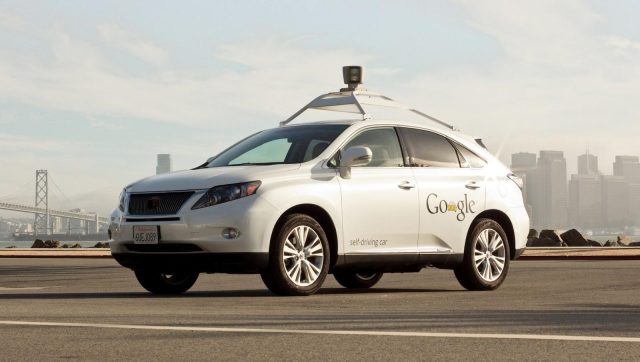Uber says a consultation on private hire regulation could spell an end to the way the taxi-hailing app operates.
Month: September 2015
Amazon Flex will pay you “$18-25 per hour” to deliver Prime Now packages

We can’t tell whether that recipient’s face is one of joy because she received a package within an hour or sheer terror because she got it from a random dude who makes money via Amazon’s new Flex delivery program. (credit: Amazon)
If you think there’s not enough self-employed driving gigs in today’s Uber-style economy, Amazon has some news for you. Starting Tuesday in the company’s home base of Seattle, the online shopping giant will begin paying people “$18-25 per hour” to deliver Amazon Prime Now packages out of their own cars.
The program, dubbed “Amazon Flex,” will eventually launch in a number of major markets, including New York, Dallas, Chicago, Miami, Baltimore, Austin, Indianapolis, Portland, and Atlanta—in short, major Amazon Prime Now markets. Notably, no Californian cities are included in the list, though we can’t be sure whether that’s because of “sharing” economy pitfalls such as litigation filed by San Francisco Uber drivers about benefits they may be entitled to due to “employee” status.
According to the program’s site, participating delivery men and women must own cars, have valid drivers’ licenses, be over the age of 21, pass a background check, and own an Android smartphone.
Google’s cars need to drive less like robots and more like humans

A Google self-driving car. (credit: Google)
Google has spent several years working to teach robots how to drive perfectly. The Wall Street Journal reports that the company now has to teach the cars how to break speed limits and aim for corner apices instead. The company’s self-driving fleet of cars is pretty safe, with just 16 accidents since 2009.
But the vast majority of those were human drivers rear-ending the Google car, something that many in the field attribute to the very conservative nature of the cars’ programming. The self-driving cars will slow down or stop based on cues they detect from car passengers or other road users that humans would ignore.
A Google car was paralyzed by a cyclist balancing on his fixed-gear bike at a stop sign in Austin last month. The cyclist’s motion of rocking back and forth to stay upright fooled the car into thinking he was moving, so the car refused to move. And Google had to change the cars’ programming with regard to crossing double yellow lines after discovering the autonomous vehicles would instead just sit permanently behind other vehicles double-parked on the road.
Feds say your hard drives are for the government’s keeping

(credit: James Marvin Phelps)
The Justice Department is set to argue Wednesday before a federal appeals court that it may prosecute people for crimes based on evidence obtained from their computers—evidence that was outside the scope of an original probable-cause search warrant.
That’s a big deal in today’s digital age. Society has evolved to the point that many people keep all of their papers and effects co-mingled on their computer hard drives.
The highly nuanced legal dispute initially seems innocent enough. It concerns an accountant’s tax evasion conviction and two-year prison sentence in 2012 that was based on a court-authorized search and imaging of his computer files. Stavros Ganias’ files were copied as part of an Army overbilling investigation into one of his clients. Holding on to the imaged files for nearly three years, Connecticut authorities discovered fresh evidence unrelated to the initial search of the files and got new search warrants to investigate more of the accountant’s mirrored files that were already in the government’s possession. All the while, Ganias had subsequently deleted those files from his hard drives after the government had imaged them, according to court records.
Study: Racially charged hate crimes go up as broadband expands

(credit: FBI)
Does online hate speech ripple into the real world in the form of offline hate crimes? A study scheduled to publish in the next issue of MIS Quarterly sought to answer this question. Its authors say that their results show a strong correlation between increased rates of racially motivated hate crimes and areas that saw significant increases in broadband access.
The study, conducted by researchers at the University of Minnesota and NYU’s Stern School of Business, determined that depending on the year in question, every 65 percent increase in broadband in a given American county correlated with an uptick in racially charged hate crimes that ranged from 70 to 270 percent.
“[Our research team] thought that the issue of racial hate crimes is of great importance—the fact that such crimes are reported so often in news says a lot about this,” study co-author Jason Chan told Ars. “Over the years, I saw many instances in which the Internet was used and misused for such purposes, and I thought that a link between the two might be present, which sparked the motivation to begin this work.”
Facebook reacts to hoax privacy posts
The social network has hit back at the latest round of rumours about privacy settings with a light-hearted reassurance to its Earth-bound users.
Medical devices attract hackers
Researchers have found evidence that thousands of critical medical machines, such as MRI scanners, are available to access online.
Covert Electronic Surveillance Prompts Calls for Transparency
Google chief on search’s new frontier
Google’s search chief explains how Now on Tap furthers his firm’s goal of being able to deliver results without asking users to type in requests.
Facebook down for second time in week
A 40-minute outage on Facebook was the second time in a week the popular site went down, and was followed by a shares tumble.
